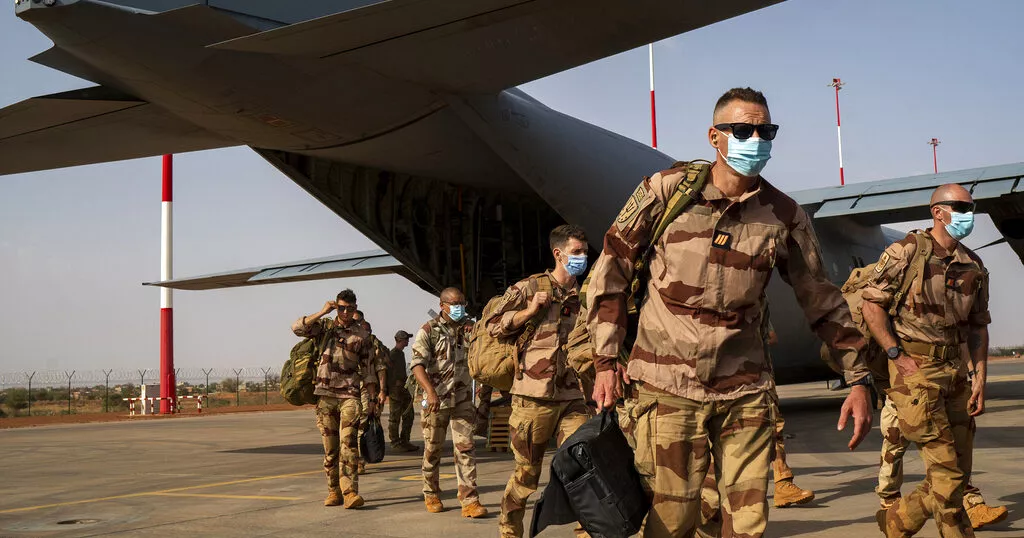In a significant geopolitical move, President Emmanuel Macron of France recently announced that his country would withdraw its ambassador and military contingent from Niger. This decision comes in the wake of a coup that transpired in the West African nation two months ago, leading to the ousting of the pro-Paris president. In this article, we will delve into the details of Macron’s announcement, the implications it holds for France and Niger, and the broader context of France’s presence in the Sahel region.
Understanding Macron’s Decision
President Macron’s declaration to withdraw the French ambassador from Niger signifies a diplomatic shift in Franco-Nigerien relations. In the coming hours, the ambassador and several diplomats will return to France, but the exact logistical arrangements remain undisclosed. Macron also declared the end of military cooperation, asserting that French troops would be gradually withdrawn in the months and weeks ahead, with a complete pullout expected by the end of the year.
Niger’s Response
Niger’s military rulers swiftly responded to Macron’s announcement with a statement broadcast on national television. They hailed the withdrawal of the French ambassador and troops as a “new step towards the sovereignty of Niger.” This marks a historic moment for the nation, reflecting the will and determination of the Nigerien people.
Ban on French Aircraft
Notably, the military rulers in Niger also issued a ban on “French aircraft” from flying over the country’s airspace, as announced by the Agency for the Safety of Air Navigation in Africa and Madagascar (ASECNA). While the impact of this ban on the ambassador’s evacuation remains uncertain, Macron expressed his intention to engage in peaceful consultations with the putschists in the coming weeks and months.
France’s Presence in Niger
France has maintained a presence of approximately 1,500 soldiers in Niger as part of its anti-jihadist deployment in the Sahel region. However, the post-coup authorities in Niger have expressed a reluctance to continue this fight against terrorism. Previously, the military leaders had demanded the departure of French ambassador Sylvain Itte, but the French government had refused to comply, citing the ambassador and his staff as “literally being held hostage.”

Macron’s Stance
President Macron reiterated France’s position that the ousted President Mohamed Bazoum remains the “sole legitimate authority” in Niger. He argued that Bazoum was targeted by the coup due to his courageous reforms and as a result of ethnic conflicts and political cowardice.
Regional Implications
The coup in Niger is the third such event in the region in recent years, following similar incidents in Mali and Burkina Faso in 2021 and 2022, which also led to the withdrawal of French troops. Macron’s efforts to establish Niger as a strategic ally in the region have faced a setback with this development. The presence of over 1,000 US troops in the country adds to the complexity of the situation.
France’s Evolving Role in Africa
Macron has consistently advocated for a historic shift in France’s post-colonial influence in Africa. However, analysts point out that France is encountering challenges to its influence in the face of growing Chinese, Turkish, and Russian presence on the continent. The Economic Community of West African States (ECOWAS) had threatened military action to restore Bazoum’s government, but so far, these threats have not materialized into action.
Concerns over Jihadist Threats
Macron expressed deep concern over the resurgence of jihadist attacks, particularly in Mali and now Niger. He emphasized that France, while proud of its military actions in the region, is not responsible for the political affairs of these countries and will act accordingly.
In conclusion, President Macron’s decision to withdraw the French ambassador and troops from Niger following the coup represents a significant shift in France’s foreign policy in Africa. The move reflects the complex dynamics of post-colonial influence and the evolving geopolitical landscape on the continent. It remains to be seen how this decision will impact the stability and security of the Sahel region.
Read more about it here
FAQs
- Why did France decide to withdraw its ambassador from Niger?
- France made this decision following a coup in Niger that ousted the pro-Paris president, signaling a diplomatic shift.
- What is the significance of banning “French aircraft” from Niger’s airspace?
- The ban on French aircraft adds complexity to the evacuation of the French ambassador and signals tensions between the military rulers and France.
- What role did President Mohamed Bazoum play in this crisis?
- Bazoum was targeted by the coup due to his reforms and amid ethnic conflicts and political issues, according to President Macron.
- How does this coup affect France’s presence in the Sahel region?
- The coup represents a setback for Macron’s efforts to establish Niger as a strategic ally and reflects broader challenges to French influence in Africa.
- What are the concerns regarding jihadist threats in the region?
- Macron expressed deep concern about the resurgence of jihadist attacks in Mali and Niger, highlighting the ongoing security challenges in the Sahel.